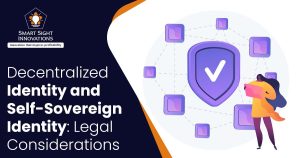 Within an organization or system, identity management refers to the act of creating, preserving, and managing an individual’s digital identity. It encompasses the tools, policies, and technologies that facilitate the management of user identities, ensuring secure, and efficient access to resources.
Within an organization or system, identity management refers to the act of creating, preserving, and managing an individual’s digital identity. It encompasses the tools, policies, and technologies that facilitate the management of user identities, ensuring secure, and efficient access to resources.
Identity management is critical for safeguarding sensitive information, protecting against unauthorized access, and ensuring compliance with privacy regulations. This process involves the creation of unique digital identities for individuals, often associated with usernames and passwords, and the implementation of authentication mechanisms to verify users’ identities.
Identity management systems often include features such as single sign-on (SSO), multi-factor authentication (MFA), and robust access control measures. As organizations navigate an increasingly interconnected and digitized landscape, effective identity management becomes not only a security imperative but also a key component of providing a seamless, and user-friendly digital experience.
The traditional paradigms of identity management are undergoing a revolutionary shift with the advent of decentralized identity and self-sovereign identity (SSI). As these innovative approaches gain traction, they not only promise enhanced security and privacy but also pose intriguing legal considerations.
What Is Decentralized Identity?
Unlike traditional systems where a central authority controls and verifies identity, decentralized identity relies on distributed ledger technology, usually blockchain, to enable users to manage their identities. It has emerged as a groundbreaking solution to the challenges posed by traditional, centralized identity management systems.
Essentially, decentralized identity offers users a more transparent, safe, and user-focused way to manage and govern their identity traits.
Key Features of Decentralized Identity:
1. User Control
User-centricity is a fundamental principle, placing the power of identity management back into the hands of the individuals themselves. Individuals have complete control over their personal data, deciding what information to share and with whom.
2. Privacy by Design
Decentralized identity systems are designed with privacy in mind. Personal data is not stored in a central repository, reducing the risk of large-scale data breaches.
3. Interoperability
Decentralized identity systems aim to be interoperable across various platforms and services. This interoperability enhances the fluidity of identity verification processes in diverse online environments.
4. Reduced Dependency on Central Authorities
By eliminating the need for centralized authorities to verify identity, decentralized identity systems reduce the risk of single points of failure.
5. Security Through Decentralization
The use of decentralized technologies, particularly blockchain, enhances the security of identity data. As blockchain is dispersed, no single party can take control of the entire system.
6. Immutable Audit Trails
An audit trail that is clear and impenetrable is produced by storing transactions and modifications to identity records in an immutable ledger. This feature enhances accountability and traceability within the system.
Why Do We Need Decentralized Identity?
Decentralized identity is indispensable in addressing the shortcomings of centralized identity systems prevalent in today’s digital landscape. It is a response to the urgent need for a more secure and privacy-centric approach to manage digital identities in an increasingly interconnected world. The need for decentralized identity arises from several crucial imperatives.
- Firstly, privacy concerns have reached a critical juncture with centralized systems, which often aggregate and store vast amounts of sensitive personal data. Decentralized identity mitigates this risk by empowering individuals to control and selectively share their information, ensuring privacy by design.
- Secondly, the prevalence of large-scale data breaches and identity theft incidents underscores the vulnerability of centralized repositories. Decentralized identity, anchored in blockchain technology, disperses identity information across a distributed network, significantly reducing the risk of a single point of failure and unauthorized access.
- The current model of fragmented digital identities across various online platforms poses interoperability challenges. Decentralized identity provides a unified, interoperable solution, enabling seamless and secure verification across diverse online services.
Implementation of Decentralized Identity
The implementation of decentralized identity is a pivotal step in redefining how individuals manage and control their digital identities. The application of these principles not only offers improved security and privacy but also lays the groundwork for a more inclusive and interoperable digital ecosystem as decentralized identity takes acceptance. By placing individuals at the center of identity management, decentralized identity systems strive to create a paradigm where trust is distributed and privacy is prioritized.
-
Decentralized Identifiers (DIDs)
At the core of decentralized identity implementation are decentralized identifiers. DIDs are unique identifiers anchored in blockchain technology and cryptographically secured, providing individuals with a self-owned and controlled identifier. Unlike traditional identifiers linked to centralized databases, DIDs empower individuals to create and manage their digital identifiers, fostering a sense of autonomy over their digital presence.
-
Verifiable Credentials
Building on DIDs, the implementation of verifiable credentials is a crucial aspect of decentralized identity systems. These credentials are issued by trusted entities, such as government agencies or educational institutions, and are cryptographically signed. Individuals can selectively present these credentials, enabling a granular approach to information disclosure. This not only enhances privacy but also streamlines identity verification processes, reducing the reliance on centralized authorities.
-
Decentralized Authentication
Authentication in decentralized identity systems relies on cryptographic protocols to ensure secure and tamper-proof verification. Users can prove their identity without divulging unnecessary information, creating a robust and secure authentication process. This not only mitigates the risk of unauthorized access but also reduces dependence on traditional username-password systems that are susceptible to breaches.
-
Blockchain Platforms and Ecosystems
The implementation of decentralized identity often leverages blockchain platforms specifically designed for identity management. Platforms like Ethereum, and Hyperledger Indy provide the infrastructure necessary for the creation, management, and verification of decentralized identities. These ecosystems foster collaboration between various stakeholders, including individuals, identity issuers, and relying parties, contributing to the development of a robust decentralized identity landscape.
What Is Self-Sovereign Identity (SSI)?
SSI builds upon the concept of decentralized identity by emphasizing user-centric control. In SSI, individuals have the authority to manage their identity attributes, selectively disclosing information as needed, thereby reclaiming autonomy over their personal data.
Challenges of Using Blockchain for Identity
While blockchain technology holds immense promise for revolutionizing digital identity management, it is not without its challenges. Implementing blockchain for identity introduces complexities and considerations that must be carefully navigated to ensure the system’s effectiveness and adherence to legal and ethical standards.
Addressing these challenges requires a holistic approach, combining technological innovations, regulatory cooperation, and user-centric design. As the field of blockchain for identity matures, ongoing research and development efforts aim to mitigate these challenges.
1. Scalability
Blockchain networks often face scalability issues when handling a large number of identity transactions. As the number of users and transactions increases, the capacity of the blockchain network can become a bottleneck, leading to delays and increased transaction costs.
2. Privacy Concerns
Contrary to the perception that blockchain guarantees privacy, the transparent and immutable nature of the technology can compromise user privacy. While cryptographic techniques use pseudonyms for identifying information, the on-chain data, if not handled carefully, may still expose sensitive information.
3. Regulatory Compliance
The decentralized and cross-border nature of blockchain presents challenges in adhering to diverse and evolving regulatory frameworks. Compliance with data protection laws, KYC (Know Your Customer) regulations, and other identity-related standards becomes a complex task, especially when considering the global nature of blockchain networks.
4. User Experience
Blockchain-based identity systems often require users to manage cryptographic keys and engage with smart contracts. This complexity can hinder user adoption, as managing private keys securely and interacting with blockchain interfaces may prove challenging for non-technical users.
5. Immutable Data
While immutability is a strength of blockchain, it becomes a challenge when dealing with errors or changes in identity data. Incorrect information, once recorded on the blockchain, becomes challenging to rectify, raising issues of data accuracy and compliance with the right to be forgotten.
6. Integration with Legacy Systems
Many existing identity systems are deeply entrenched in legacy architectures. Integrating blockchain with these systems requires careful planning to ensure a smooth transition without compromising security or functionality.
7. Energy Consumption
Certain consensus mechanisms, such as Proof of Work (PoW), which is used by some blockchains, have been challenged for their high energy consumption. This has environmental implications and can bring up concerns in terms of sustainability and social responsibility.
The Legal Framework for Digital Identity
The legal framework for digital identity is a complex and evolving landscape that intersects with a myriad of legal principles, regulations, and international standards. The legal considerations surrounding digital identity are significant as they cover a wide range of topics, including cybersecurity, individual rights, and data protection and privacy.
It’s imperative for policymakers, legal experts, and technologists to collaboratively navigate this evolving landscape to establish a robust and adaptive legal framework for digital identity.
-
Data Protection and Privacy Laws
One of the cornerstone aspects of the legal framework for digital identity is the integration with data protection and privacy laws. Regulations such as the General Data Protection Regulation in the European Union have a profound impact on how digital identity is managed and protected. These laws establish the rights of individuals regarding the collection, storage, and processing of their personal data, requiring entities handling digital identities to adhere to stringent privacy standards.
-
Consent Management
Consent management is a critical facet of the legal framework for digital identity. Users must provide informed consent for the collection and processing of their personal information. Legal considerations extend to the clarity and transparency of consent mechanisms, ensuring that individuals are fully aware of how their data will be utilized. In the digital identity context, where various entities may be involved in identity verification processes, managing and documenting user consent becomes a complex legal challenge.
-
Authentication and Authorization
The legal framework must address issues related to authentication and authorization in digital identity systems. This includes the legal validity of various authentication mechanisms, the responsibility of service providers to ensure secure access, and the liability in case of unauthorized access or identity theft. Legal standards are essential for determining the enforceability of digital signatures, biometric data usage, and the overall reliability of authentication methods.
-
Smart Contracts and Legal Validity
Digital identity often involves the use of smart contracts, self-executing contracts with the terms of the agreement directly written into code. The legal framework must clarify the recognition and enforceability of smart contracts.
-
Interoperability and Standards
Interoperability is a key consideration in the legal framework for digital identity. Establishing standards that ensure the seamless exchange of identity information between different systems and across borders requires legal clarity. This includes addressing issues of data portability, cross-border data flows, and the role of international standards bodies in shaping legal norms.
-
Regulatory Compliance
Digital identity systems often need to comply with sector-specific regulations. Financial institutions, for instance, must adhere to Know Your Customer (KYC) and Anti-Money Laundering (AML) regulations. The legal framework must guide on how digital identity systems can ensure compliance with these regulations while respecting privacy and security principles.
-
Liability and Governance
Determining liability in the digital identity ecosystem is a complex legal challenge. Entities involved in identity verification, authentication, and issuance of digital credentials must have clear legal responsibilities. Governance structures, potentially involving decentralized autonomous organizations (DAOs), also require legal frameworks to ensure accountability, transparency, and adherence to legal standards.
Privacy Laws to Consider
Privacy laws are important in shaping the legal landscape of digital identity and ensuring the protection of individuals’ personal information. Failure to adhere to these regulations can result in severe legal consequences, emphasizing the global significance of respecting individuals’ privacy rights. Several prominent privacy laws around the world significantly influence how organizations manage and safeguard digital identities.
1. General Data Protection Regulation (GDPR)
Enforced by the European Union (EU), GDPR is a landmark regulation that mandates stringent data protection standards. It grants individuals greater control over their personal data, emphasizing transparency, consent, and the right to erasure. Organizations globally must adhere to GDPR if they process the data of EU citizens.
2. California Consumer Privacy Act (CCPA)
In the United States, CCPA is a comprehensive privacy law that grants California residents specific rights regarding their personal information. It requires businesses to disclose data collection practices, allow consumers to opt out of data selling, and provides avenues for individuals to access and delete their data.
3. Health Insurance Portability and Accountability Act (HIPAA)
HIPAA in the U.S. focuses on protecting the privacy and security of health information. It sets standards for the safeguarding of medical records and other individually identifiable health information, impacting how healthcare entities manage digital identities.
4. Personal Data Protection Act (PDPA) – Singapore
Singapore’s PDPA controls how personal data is gathered, used, and disclosed. It establishes consent requirements, and data protection obligations, and provides individuals with the rights to access and correct their personal information.
5. Privacy Act – Australia
Australia’s Privacy Act regulates the handling of personal information by Australian government agencies and some private sector organizations. It includes principles for the fair and lawful collection, use, and disclosure of personal information.














